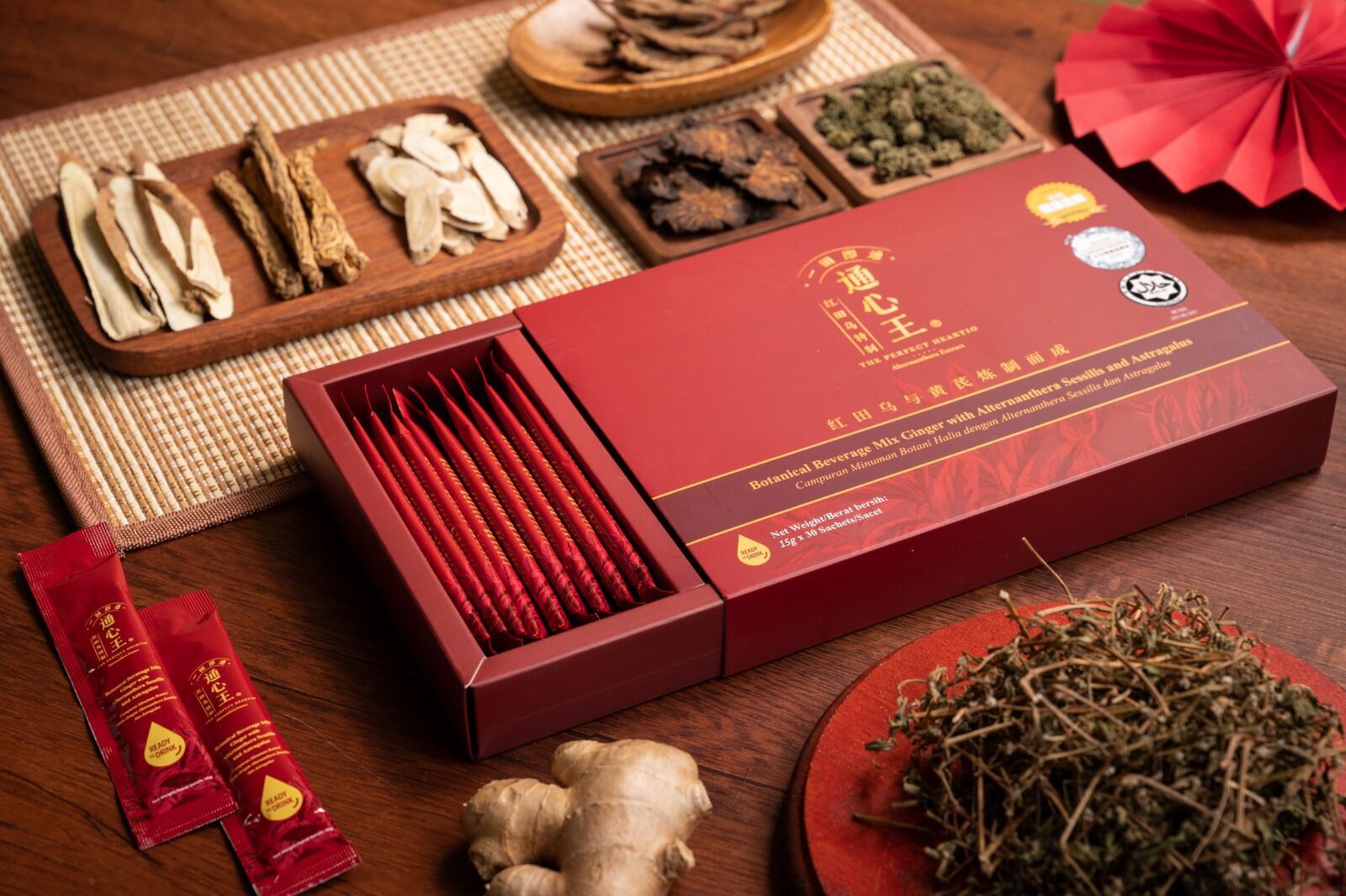The Perfect Heartio, together with the UCSI University, has completed a 12-week clinical trial on its TCM product King of Tongxin (通心王) launched back in 2021.
The open-label trial has yielded significant findings, especially on how supplementation has reduced triglycerides levels and inflammatory markers.
This is the first time the company, which focuses on TCM, has completed a clinical trial on one of its products.
Made in the form of sachet drinks, the King of Tongxin consists of eight botanicals.
They include Alternanthera sessilis extract, also known as Red Sessile Joyweed, ginger, Astragalus, Codonopsis pilosula, also known as Dangshen, and Panax notoginseng.
Speaking to NutraIngredients, Founder Jon Lai said it hoped to build up the science behind TCM, beyond just relying on word-of-mouth or traditional knowledge on TCM’s benefits.
“We have received a lot of feedback and testimonies on the efficacy of the product, but it’s all verbal feedback without any science or proof to back it up.
“The lack of scientific proof could also raise doubts among pharmacists and nutritionists in the product’s ability in improving cardiovascular health,” he said.
What’s in it
While the product does not make heart health claims on its packaging, the ingredients are commonly used in TCM for supporting heart health.
For example, Alternanthera sessilis, also known as Hong Tian Wu (红田乌) in Chinese, is a herb sold in markets and is popular among Malaysian Chinese seniors, who will purchase and brew the herb at home for six to eight hours, before finally consuming it for heart health, said Lai.
Ginger, on the other hand, is known for promoting blood flow and Codonopsis pilosula and Panax notoginseng are for regulating cholesterol levels.
The company sells the product in Malaysia’s TCM halls and independent pharmacies, and selling its products in the latter is a reason for wanting to conduct the clinical study.
Some of the common questions coming from pharmacists include whether the product or any of the ingredients used have proper studies to back up its claims.
Study findings
An open-label study conducted on 50 adults aged 30 and 60 showed that the formula has significantly improved lipids levels and inflammatory markers.
For instance, triglycerides levels were down 38.1%, and LDL cholesterol or the “bad” cholesterol reduced by 14.1%.
Two inflammatory markers, namely MMP-9 and hs-CRP were down 25.6% and 8.6% respectively.
The former is linked to arterial wall re-modeling and plaque instability. High levels can increase the risk of plaque rupture, which can in turn trigger heart attacks and strokes.
A 25% reduction strongly suggests stabilized vascular health.
The former, on the other hand, is a well-established biomarker of systemic inflammation and a predictor of cardiovascular risk.
A reduction means lower underlying inflammation, which is beneficial for heart and blood vessel health.
“We’ve also conducted questionnaire studies on on the quality of life and their physical and emotional well-being.
“Overall, it showed very positive improvements after three months of consumption,” said Dr Tan Chung Keat, associate professor at UCSI University’s School of Healthy Aging, Medical Aesthetics and Regenerative Medicine, who also led the clinical study.
Findings of the study are not yet published but there are plans for journal submission, said Dr Tan.
Outreach to healthcare professionals
With the trial findings, the company hopes to gain confidence from doctors and pharmacists in its heart health TCM products.
Dr Tan said that the clinical findings could also encourage the use of TCM as a complementary treatment to Western medicines.
“TCM actually has a very long history, even longer than modern medicines, for sure it works.
“However, we need to be sure of how it works, what is the right dosage for it to work and if the levels are safe for consumption?” he said.
As an outreach to doctors, the findings were presented at The Noncommunicable Diseases Malaysia (NCDM) Conference 2025 held in Taylor’s University on Sep 12 to 14.
“We are really excited to share with the modern medicine practitioners on how we can use TCM to complement existing treatments or as a form of prevention, as it is about the use of botanicals and usually does not come with side effects as compared to modern medicines,” he added.





